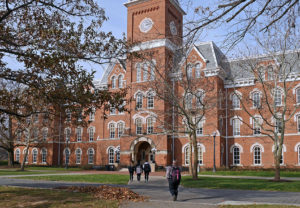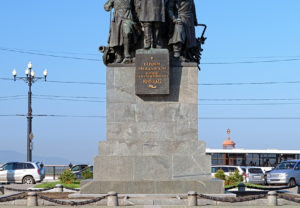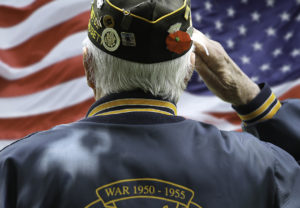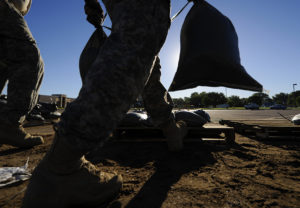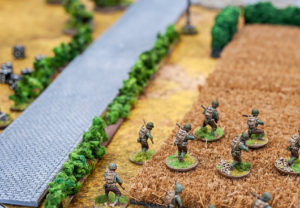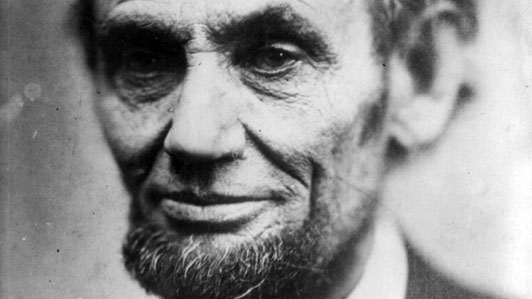Happy Birthday, Mr. President! Today, February 12th, is President Abraham Lincoln’s 206th birthday.
Born in a log cabin in Hardin Country, Kentucky in 1809, Lincoln grew up on a simple farm. His Virginian parents were from “undistinguished families,” Lincoln once said. He was self-taught and had little formal education.
After his family moved to Illinois in 1830, Lincoln ran a local store and joined the Whig party. He won a seat in the Illinois state legislature in 1834 but was unsatisfied with the Whig’s acceptance of slavery. A vocal opponent of spread of slavery, Lincoln left the legislature to teach himself the law and pursue a career as a lawyer.
Without attending any formal law school, and relying only on what he could learn by teaching himself, Lincoln passed the Illinois state bar in 1836. He gained a good reputation as a prominent attorney in the state’s new capital of Springfield. Lincoln married a wealthy young Kentucky girl, Mary Todd, after courting her for several years.
In 1846, as a member of the Whig party, Lincoln won a seat in the United States Congress. But, he became unpopular with his constituents because of his opposition to the war with Mexico and decided not to run for reelection.
Disillusioned with politics and frustrated with the Whig’s staunch support of slavery, after he left Congress Lincoln switched parties and joined the new, anti-slavery Republican party in 1858.
During and after his only Congressional term, Lincoln gained national notoriety by skillfully debating the formidable democrat Stephen Douglas. After he ran unsuccessfully against Douglas for the U.S. Senate, Lincoln continued to give impassioned anti-slavery speeches across the northern states.
Impressed with his powerful debating skills and captivating speeches, the Republican party chose Lincoln as their nominee for the 1860 Presidential election. Many were angered that the Republicans passed over more prominent party members and instead selected a one-term former Congressman and self-taught lawyer from an unimportant family.
Yet, Lincoln won the election over three other candidates, including his political rival Stephen Douglas.
The election of an anti-slavery, anti-Mexican-American war Republican was the tipping point for southern slave states. By the time Lincoln was inaugurated as the 16th President, seven southern states had formed the Confederate States of America. Led by Jefferson Davis, the Confederacy made a preemptive strike against Fort Sumter in 1861 and began the Civil War.
Having only a short period of military service under his belt, as opposed to Davis’ military experience during the Mexican-American war and tenure as the U.S. Secretary of War, Lincoln taught himself about warfare. He also relied heavily on the expertise of hand-picked military leaders, like Ulysses S. Grant.
After the Union victory at Antietam in 1862, Lincoln issued the Emancipation Proclamation, freeing slaves in confederate states.
Throughout the Civil War, Lincoln spent time visiting with veterans. He recognized that without them, the Union would be lost. The Lincoln family spent several summers at the U.S. Soldiers Home, just north of Washington, D.C.
After winning reelection in 1864, President Lincoln grew more adamant that the southern states rejoin the Union.
With malice toward none; with charity for all; with firmness in the right, as God gives us to see the right, let us strive on to finish the work we are in; to bind up the nation’s wounds…. – Lincoln’s second Inaugural Address
On April 9, 1865, Confederate General Robert E. Lee surrendered to Union General Ulysses S. Grant at the Appomattox Court House. While Lincoln was eager to reunite his war-weary nation, he would not live to see it. On April 14th, while watching Our American Cousin at Ford’s Theater, actor John Wilkes Booth walked into the President’s box and shot him at point-blank range. Lincoln died the next morning at a small house across the street from the theater.
Lincoln’s prolific legacy lives on, as does the day of his birth in a humble Kentucky log cabin.
To learn more about Lincoln’s life, visit the Lincoln Memorial online and explore the Emancipation Proclamation at the National Archives’ website.
ALSO:
Today in Military History: U.S. Goes on War Time and G.I. Joe is Born







